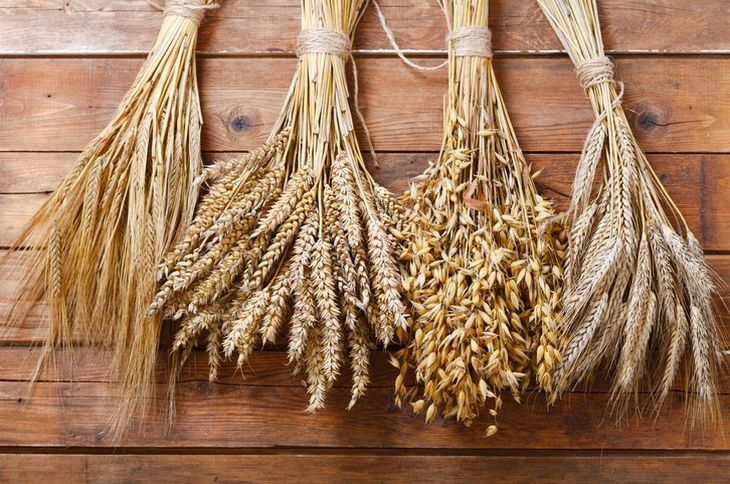EU adopts further relaxation of environmental measures to increase cereal production

The European Commission announced on Wednesday (27 July) that derogations from key environmental requirements in the EU’s farming subsidy programme will be extended into 2023 to maximise the EU’s cereal production capacity.
A proposal for a one-year derogation from certain good agricultural and environmental condition (GAEC) standards in the next Common Agricultural Policy (CAP) was submitted to a specific committee composed of representatives of the member states last Friday and formally adopted on Wednesday via the written procedure.
Concretely, this involves allowing temporary exemptions for rules on crop rotation, the use of fallow land, and maintenance of non-productive elements on arable land – in other words, farmland areas set aside for improving biodiversity and preserving soil health.
The derogations, which have sparked intense debate, were announced as part of efforts to plug the gap filled by Russia’s invasion of Ukraine, which has seen exports of key food commodities from the two agricultural powerhouses plummet.
According to a Commission press statement, the primary motivation for granting an extension of these derogations is to ensure food security.
“Every tonne of cereals produced in the EU will help to increase food security worldwide,” the statement adds.
Calling it the result of a “careful balancing” between global food availability and affordability on the one hand, and protection of biodiversity and soil quality on the other, the Commission estimates that the move will put an extra 1.5 million hectares back into production compared to today.
According to the Commission’s latest short-term agricultural outlook, EU cereal production is expected to be 2.5% lower this year than in 2021 due to extreme weather conditions such as increased heat and decreased rainfall.
The derogation could be construed as the EU’s contribution to the stabilisation of the global cereal market and a form of reaction to the deal between Russia and Turkey to allow Ukraine to resume exports of grain from their seaports, which was signed in Istanbul about half an hour before the Commission’s announcement.
The derogation to GAEC standards is a contentious issue, with farmers’ associations and member states arguing this is needed to increase EU food production, while others warn that, in the context of the climate crisis, the EU cannot afford to sacrifice the environment on the altar of food security.
In March, the EU executive already allowed an exceptional and temporary derogation to allow the production of any crops on fallow land this year while maintaining the full level of greening payments for farmers in the bloc’s agricultural subsidies programme.
The Commission tested the waters for a potential extension of this derogation at June’s gathering of EU-27 agriculture ministers, with 16 member states expressing their support for the idea.
Last week, the Czech farming minister and chair of the Agrifish EU Council Zdeněk Nekula said that “virtually all the member states have called for flexibility in the framework of the CAP.”
The extension of this derogation to the fallow land requirement to the next programme is expected to have an even larger effect, as the new CAP rules, set to enter into force from 2023, stipulate the preservation of 4% of fallow land, regardless of farm size.
The previous CAP reform was looser with its requirements, instead requiring that on farms exceeding 15 hectares, a minimum of 5% be dedicated to areas beneficial for biodiversity – which included, but was not limited to, fallow land.
This means that roughly 90% of arable land in Europe will be affected by such a derogation, with the exception of grasslands and permanent crops.
Another key difference between the 2022 and 2023 derogations is that the exemptions will be restricted to only what is “strictly necessary to address the global food security concerns”, meaning it will not apply to the planting of crops which are typically used for feeding animals, such as maize and soya.
EURACTIV understands that the exclusion of crops for animal feed was part of a compromise reached with the cabinet of the Commission’s vice-president Frans Timmermans, which was against the idea of further relaxing environmental measures in the CAP for food security reasons.
For his part, EU Agriculture Commissioner Janusz Wojciechowski said in a Twitter thread on Friday that while he acknowledged that permitting these derogations is not a “perfect choice”, in the short term, the EU “simply cannot ignore the immediate benefits of keeping significant areas of our agricultural open land for production”.
The news that the EU executive would extend the temporary derogation was announced on Friday at 16.28 following a request from EU member states.
However, a Commission spokesperson confirmed to EURACTIV that the proposal had already been presented at the weekly meeting of Commissioners on Wednesday.
The timing of the announcement immediately sparked controversy, as it came on an afternoon at the kick-off of the summer season.
Previously, the EU executive has chosen to push the presentation of key agricultural announcements into the quiet summer months, as happened with the choice to delay the publication of its controversial report on the potential effects of the EU’s flagship food policy, the Farm to Fork strategy, for half a year.
Asked why the EU executive chose to delay the presentation until a time when many professionals working in the EU policy space are off work, the spokesperson said only that they had “followed internal procedures”, declining to respond to further questions on the matter.
Another EU source told EURACTIV that the interservice process on the derogations started on Wednesday and ended on Thursday evening, with the written College approval immediately after that.
Read also
Wheat in Southern Brazil Impacted by Dry Weather and Frosts
Oilseed Industry. Leaders and Strategies in the Times of a Great Change
Black Sea & Danube Region: Oilseed and Vegoil Markets Within Ongoing Transfor...
Serbia. The drought will cause extremely high losses for farmers this year
2023/24 Safrinha Corn in Brazil 91% Harvested
Write to us
Our manager will contact you soon



